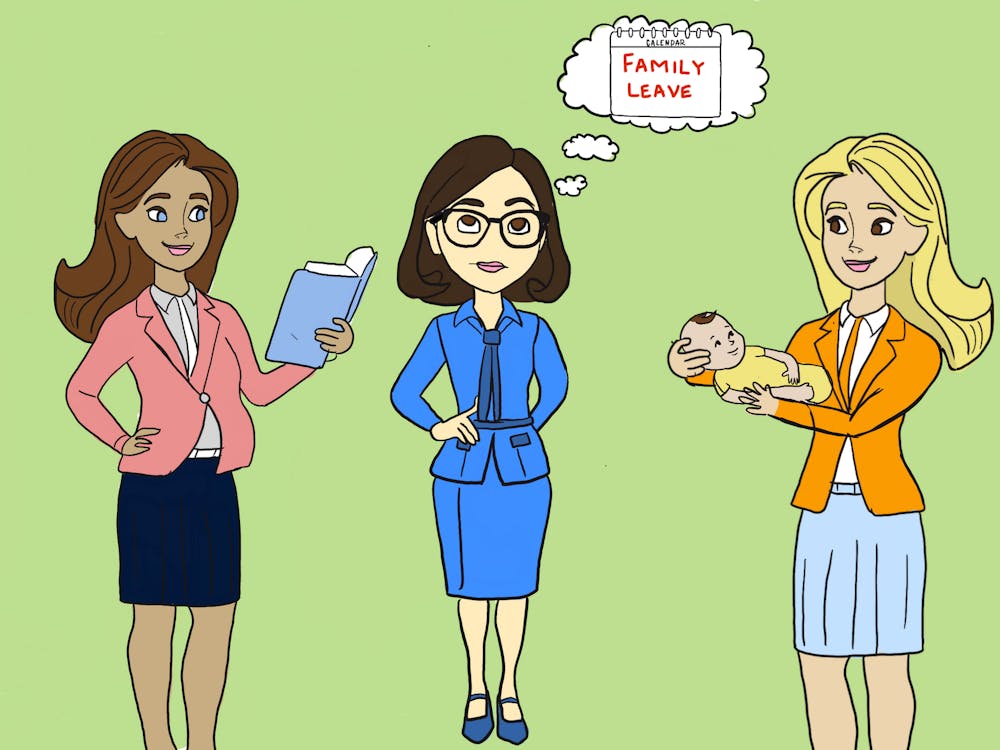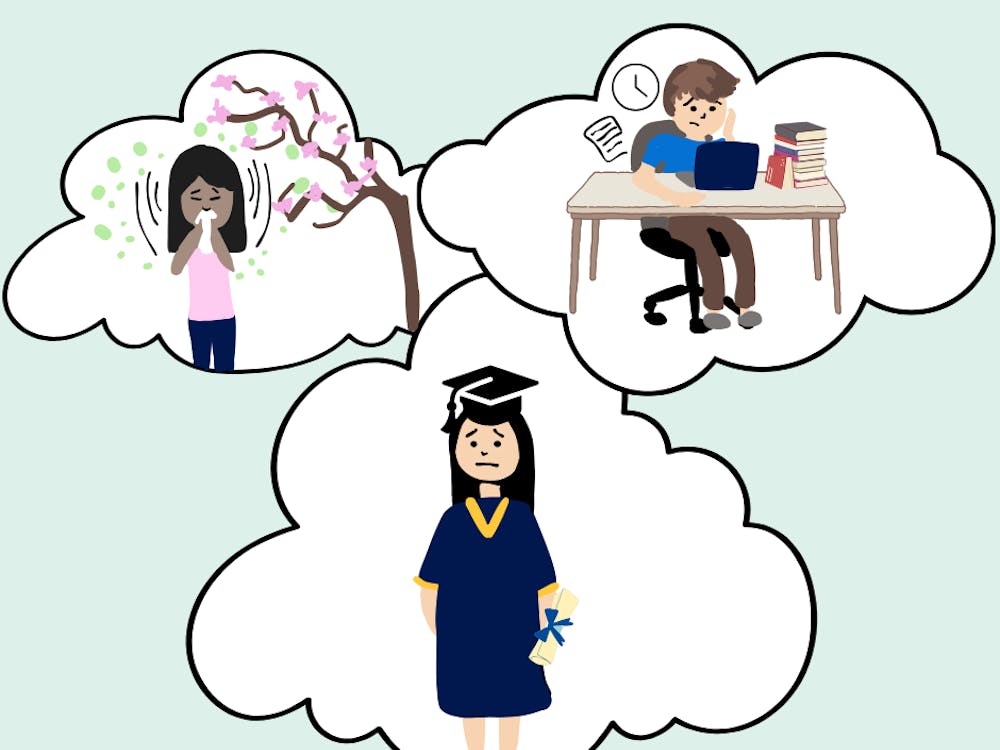With the recent violent crimes and burglaries in which members of the University community were victims, some question the degree to which students feel safe at the University. With such incidents as the shooting of a student on Wertland Street, multiple apartment burglaries in the Lambeth Field area, an assault and attempted mugging near Lambeth as well, the attempted mugging on Jefferson Park Avenue, the death of a recent graduate on the Blue Ridge Parkway and an assault and robbery at gunpoint on the Corner, there seems to be much potential for students to feel unsafe.
While the University is generally seen as a safe environment, the recent events have made some students call into question just how safe they are.
First-year College student and McCormick Road resident Alyssa Brown said she came to the University with the idea that she was going to a safe place.
"Here, I always felt safe, but hearing these things happen, I'm a little more nervous," Brown said. "It's a reality that I'm glad I know now, that way for the rest of four years I'll definitely be more cautious than I would have been having not heard about those events."
In light of these recent incidents, many students are taking extra precautions regarding their safety. Brown said she tries to go to the library with a friend and avoids walking home alone at night. But, she said if she does walk home alone, she calls someone to let them know when she leaves one place and when she arrives at her destination.
"Just because it's Charlottesville doesn't mean that something couldn't happen to you," Brown said. "You definitely have to take the same precautions as you would in New York City, Philadelphia, Washington, D.C. or some other big city."
While the University administration is working with both city and University police to make the community a safer place, administration also strongly encouraged that students take individual safety precautions, Dean of Students Penny Rue said. Rue said such precautions include traveling in groups, using Safe Ride or the late-night bus service, being sure to lock doors and windows and using blue phones and Yellow Cab when necessary.
Safety "is a very high priority, and it's just one of those things that [students and administrators] need to work together on," Rue said.
She said she hopes the recent incidents are "inciting people to be extremely thoughtful about their coming and going and very good at taking care of each other."
Second-year College and Education student Michael Chapman, who resides in the Lambeth Field Apartments, said he doesn't feel as safe walking around anymore. Although Chapman said at times he inevitably must walk home alone at night, he tries to be extremely alert and constantly looking around at his surroundings.
"I'm not just worried about myself," Chapman said. "I'm worried about the well-being of others here."
Many students are taking measures to not only look out for their personal safety but also for the safety of their friends and others in the community.
"I think that we need to just make sure that we're watching out for one another," Chapman said. "From what I've noticed between my friends, we're trying to make sure that everybody stays safe through just watching out for people, making sure they get home alright and phone calls when they get back to their buildings."
While Chapman said he has seen some of his friends become more concerned with their safety, he said he is comforted by the response he has noticed from the University.
"I'm seeing a lot more police cars patrolling now and more police officers walking around, making sure everyone is safe," Chapman said. "They're responding as best as they can, and I feel that students feel safer to a degree."
Although Lambeth Field was one of the areas most affected by the recent crimes, Chapman said Lambeth is still a good place to live.
Despite the events that have occurred, "the Lambeth community is still a family, and family watches out for one another," Chapman said.
One area that has received particular attention for recent crime off-Grounds has been Wertland Street. Third-year College student Blake Segal lives on Wertland Street, roughly two houses down from where the September shooting occurred. He has been living in that area for over a year and plans to stay there for his fourth year.
"I know that I live close to a place that's not as safe as the central Grounds of U.Va.," Segal said.
Yet Segal said he does not feel unsafe living there at all. Although Segal said he tends not to put himself in situations where he is walking home alone at night, he said he would feel fine walking home from the library at 1 a.m.
"One reason that these [incidents] do make headlines is that they are such rare occurrences, and that we're not used to them happening," Segal said. "If people are going to not come [to Wertland Street] because of one incident, then it's really a skewed perspective on how crime works and what makes a place safe."
Segal said the people who live closer to 10th Sreet than 14th Street have been generally more shaken up by the incident. Nevertheless, Segal said Wertland Street is home to primarily University students from the 14th Street to the 10th Street area.
"So much of it is psychological," Segal said. "If you think of a place as unsafe or frightening, then whenever you look at it, it will always be unsafe and frightening."
When dealing with how students are feeling as a result of unsettling occurrences, the nature of perceived fear is a concern. Dr. Russ Federman, director of the University's Counseling and Psychological Services (CAPS) at Student Health, said individuals differ in how they perceive safety or lack thereof. Federman said last year about 1,715 students sought counseling with CAPS, and he has seen no substantial increase in the amount of students seeking counseling recently for safety issues.
"I do think the world we live in, even here in Charlottesville, is at times a dangerous place," Federman said. "Whether or not this affects us emotionally or psychologically has everything to do with how much we maintain conscious awareness of that danger."
Due to high media exposure of the recent crimes affecting the University, the fear experienced by some students can be seen as more a result of awareness than of an actual increase in danger.
"If students do feel that it is less safe, that doesn't mean that it is less safe," Federman said. "You can have a lot of media exposure, and it creates a sense of anxiety."
Fourth-year College student Frank Michael Muñoz, who has been living on Jefferson Park Avenue for over two years, said he doesn't feel as though the recent incidents "are indicative of a general increase of crime in the area."
"I think they simply expose the false sense of safety that pervades our campus, and, as students, we should recognize that we often believe we are safer than we really are," Muñoz said.
Federman said a lot of people "live with a degree of denial," rarely feeling that they're unsafe, which is an unrealistic view to have.
"College isn't necessarily a bubble where everything is controlled by the University," Segal said. "There are still real world things that you have to deal with."
While it is important not to maintain a false sense of invulnerability, it is just as important not to let fear take over everyday life.
"If anyone thought of how dangerous it was to go out into the world, we might find that many people stay at home," Federman said. "But we don't think about it -- we just go forward with our day."






